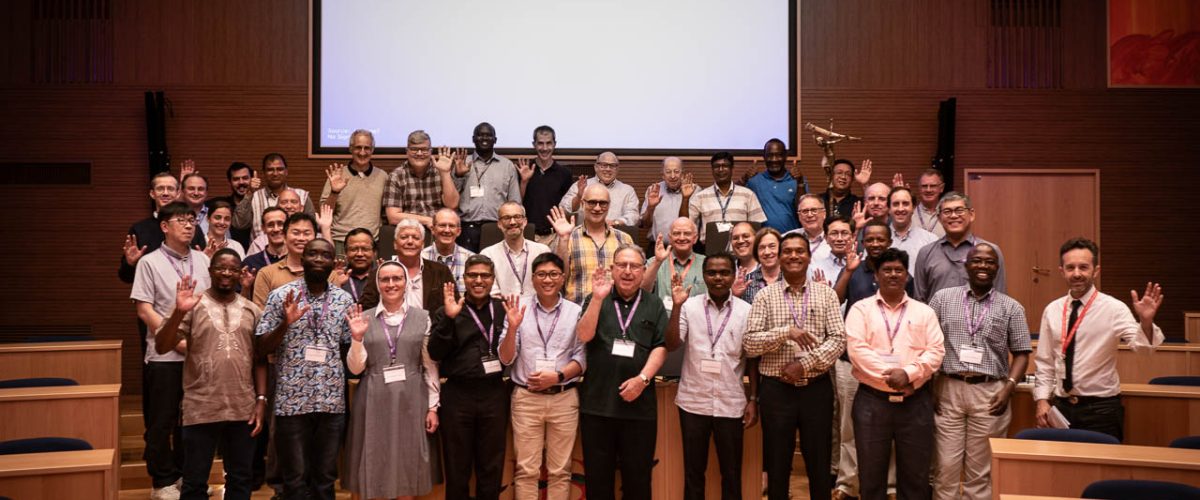CIS CONFERENCE: THE FORMULA OF THE INSTITUTE
“A Pathway to God”, experience, vision, mission
Click to read in other languages: ES / FR / IT
The Secretariat for the Service of Faith has re-established the CIS conferences on Ignatian Spirituality. In the past, these have provided an important opportunity for scholars and practitioners to spend time exploring the riches of Ignatian Spirituality and the foundational texts of the Society. The first one was held in Rome, at the General Curia, from June 12 to 14. Fr. General proposed the Formula of the Institute as the topic.

During the first day, the theme was the “development and reading of the Formula”. In his presentation, Fr. General spoke about the Importance of the Formula for the Society today, through a process of re-discovering and re-reading the Formula as an expression of the identity and charism of the Society and what role it plays today in shaping our life and mission. Fr. Barton Geger gave a presentation about the Formula in its Historical Perspective, explaining what similarities and divergences the Jesuits have with other forms of religious life, and why some of the Society’s innovations still go generally unrecognized. He also focused on how comparing the Formula to the rules of other institutes is vital for providing perspective to both realities. Fr. Patrick C. Goujon’s presentation addressed how the Formula can still inspire Jesuits, collaborators, and partners in mission, and offered a comparative reading of the texts of Ignatius of Loyola to assist in the understanding of the Formula.
On the second day the theme was “discernment, identity and mission”. Fr. Hermann Rodríguez Osorio SJ made a contribution about the relationship that could be established between the Deliberation of the First Fathers of 1539 and the Formula of 1540, highlighting in particular the method of work or construction of the founding documents. On the other hand, Fr. Mark Rotsaert focused on a contemporary understanding of the vow of obedience in comparison to the time of Ignatius; and Card. Ghirlanda gave a presentation on the Formula in the light of canon law.

On the last day, under the theme “the Spirit, the Law and the liturgy of the Jesuit Life-Mission”, Fr. José García de Castro Valdés explored the mystical values and foundation of the Formula Instituti trying to discover a deeper Ignatian understanding of its words. Fr. James Hanvey SJ’s presentation explored the pneumatological nature of the Formula and its implications for contemporary Jesuit life and governance and discernment of mission. Fr. Carlos Coupeau SJ presentation described how the Formula offers a vision, a way of looking and a way of orienting oneself in the midst of reality.
During the plenary, the conversation featured consolations and desolations. One Jesuit said: “this document was dead to me. Now it is alive and full of the spirit”. In the same line, another Jesuit expressed: “There is life in the sources. The person expressed in the sources is the person that I want to be”.

For future sessions, some of the topics suggested could be about other Ignatian texts, such as the Preamble of the Constitutions, or about a virtue, such as humility. With humility we can talk about theology, spirituality, or scripture. Another possible topic could be about lay people as collaborators, networking, or about how Ignatian Spirituality has been generating a lot of religious female families. Another topic could be the pedagogy of the Spiritual Exercises, and about how to teach it.
Many Jesuits and other participants stated that they are eager to share what they have learnt and lived during the CIS conference with their communities, colleagues and fellow scholars, and hope that the CIS conference presentations could also become a publication.




